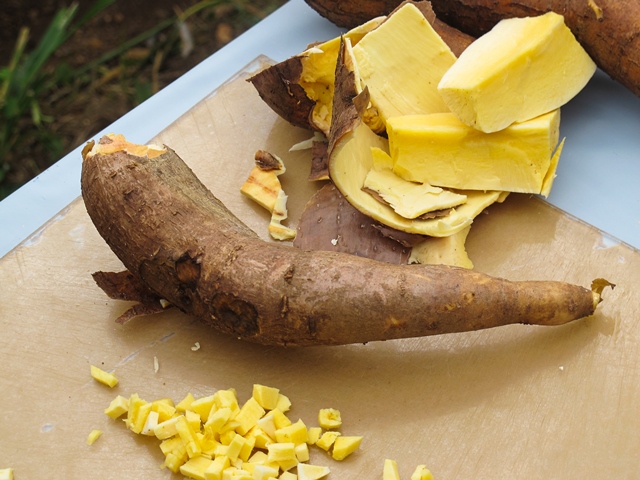Health of Mother Earth Foundation (HOMEF), the GMO-Free Nigeria Alliance and 43 other civil society organisations (CSOs) have urged the National Biosafety Management Agency (NBMA) to reject the application by the National Root Crops Research Institute, Umudike for field trial of cassava, genetically modified to express elevated levels of Iron and Zinc in the storage roots and high resistance to cassava brown streak disease (CBSD) in Nigeria.

The group, in an objection that was submitted to the NBMA on Friday, June 21, 2019, pointed out the fact that the stability of the traits involved in the modification process is not certain and the potential for gene flow to wild varieties of the crop and the impact on non-target organisms poses serious threat to biodiversity.
They also revealed that genetic engineering of mineral content in staple crops raise serious concern and has the inherent disadvantage of over-expression of multiple genes which holds the possibility of causing significant toxicity to biological systems.
The group also noted that the applicant did not provide information relating to the several gene orchestrated processes from mineral uptake by the roots to transport throughout the plant to accumulation in edible tissues (cassava storage roots).
“The unintended outcome and hence potential harm of these complex genetic interplay remain unknown” they added.
The NBMA was asked to reject this application on the ground that commercial release of the GM cassava has not been authorised before in any jurisdiction in the world, stressing that the lack of relevant scientific information and knowledge regarding the extent of potential adverse effects, triggers the Precautionary Principle of the Cartagena Protocol on Biosafety to which Nigeria is signatory and which advises caution when scientific evidence about environmental or human health hazard is uncertain.
Besides several other reasons, the application is also faulted for lacking in the standard operating procedures (SOP) / protocols for collecting environmental impact data from the field trials; for absence of parameters/variables that will measure the anticipated impact of the herbicides (Primextra Gold and Touchdown Forte) to be used on organisms and biodiversity; for absence of molecular information on the genetic construct; and for not stating anticipated threats or potential harmful unintended effects which are specific to the gene, crop and site of growth of the modified event.
In the statement of objection made available to EnviroNews on Wednesday, June 26, 2019, the Director of HOMEF, Nnimmo Bassey, pointed out that the possibility that the cassava plant from the experimental field will be consumed is very high as it is almost impossible to rule out surreptitious acquisition of the stem-cutting and the likelihood of unlawful harvest by locals who had always accessed improved cassava varieties from the NRCRI, Umudike. He added that the fact that insects and flood pollinate cassava presents serious concern for human health and biodiversity.
Bassey recalled that, in 2004, the International Institute of Tropical Agriculture (IITA), the Donald Danforth Plant Science Centre, the National Biotechnology Development Agency and National Root Crops Research Institute in Nigeria made an application to the Federal Ministry of Environment to carry out field trial of cassava genetically modified to express resistance to the cassava mosaic disease in Nigeria.
“The procedure was discontinued that same year as IITA wrote in that tests carried out in the USA showed failure of the cassava at conferring resistance to the disease.”
It was also stated that, recently, countries such as Zimbabwe have conducted field trials of genetically modified cassava but such research in these countries has been discontinued and abandoned at laboratory stage for being futile.
“We do not see the authenticity of the field trials as the results of the ones previously conducted on genetically modified food crops in Nigeria are not in the public domain,” Bassey added.
The groups reiterated that genetic modification of our food crops is not the solution to food and agriculture challenges and stated that nourishment in terms of mineral contents can best be increased by encouraging diet diversification through locally available foods.
They demanded that NBMA should reject the application by the NRCRI and recommended that Nigeria should focus on effective solutions such as developing and implementing key strategies for food and dietary diversification at the community and household levels.
“We should invest in research on Agroecology which is an important and viable alternative that addresses the issue of nourishment through rich biodiversity and the diversity of ecosystems; increases productivity; nourishes ecosystems; and improves livelihoods of farmers,” they advised.
